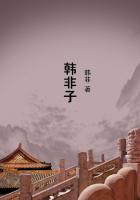Damascus has plenty of clear, pure water in it, though, and this is enough, of itself, to make an Arab think it beautiful and blessed. Water is scarce in blistered Syria. We run railways by our large cities in America; in Syria they curve the roads so as to make them run by the meagre little puddles they call "fountains," and which are not found oftener on a journey than every four hours. But the "rivers" of Pharpar and Abana of Scripture (mere creeks,) run through Damascus, and so every house and every garden have their sparkling fountains and rivulets of water. With her forest of foliage and her abundance of water, Damascus must be a wonder of wonders to the Bedouin from the deserts. Damascus is simply an oasis--that is what it is. For four thousand years its waters have not gone dry or its fertility failed. Now we can understand why the city has existed so long. It could not die. So long as its waters remain to it away out there in the midst of that howling desert, so long will Damascus live to bless the sight of the tired and thirsty wayfarer. "Though old as history itself, thou art fresh as the breath of spring, blooming as thine own rose-bud, and fragrant as thine own orange flower, O Damascus, pearl of the East!" Damascus dates back anterior to the days of Abraham, and is the oldest city in the world. It was founded by Uz, the grandson of Noah. "The early history of Damascus is shrouded in the mists of a hoary antiquity." Leave the matters written of in the first eleven chapters of the Old Testament out, and no recorded event has occurred in the world but Damascus was in existence to receive the news of it. Go back as far as you will into the vague past, there was always a Damascus. In the writings of every century for more than four thousand years, its name has been mentioned and its praises sung. To Damascus, years are only moments, decades are only flitting trifles of time. She measures time, not by days and months and years, but by the empires she has seen rise, and prosper and crumble to ruin. She is a type of immortality. She saw the foundations of Baalbec, and Thebes, and Ephesus laid; she saw these villages grow into mighty cities, and amaze the world with their grandeur--and she has lived to see them desolate, deserted, and given over to the owls and the bats. She saw the Israelitish empire exalted, and she saw it annihilated. She saw Greece rise, and flourish two thousand years, and die. In her old age she saw Rome built; she saw it overshadow the world with its power; she saw it perish. The few hundreds of years of Genoese and Venetian might and splendor were, to grave old Damascus, only a trifling scintillation hardly worth remembering. Damascus has seen all that has ever occurred on earth, and still she lives. She has looked upon the dry bones of a thousand empires, and will see the tombs of a thousand more before she dies. Though another claims the name, old Damascus is by right the Eternal City.
We reached the city gates just at sundown. They do say that one can get into any walled city of Syria, after night, for bucksheesh, except Damascus. But Damascus, with its four thousand years of respectability in the world, has many old fogy notions. There are no street lamps there, and the law compels all who go abroad at night to carry lanterns, just as was the case in old days, when heroes and heroines of the Arabian Nights walked the streets of Damascus, or flew away toward Bagdad on enchanted carpets.
It was fairly dark a few minutes after we got within the wall, and we rode long distances through wonderfully crooked streets, eight to ten feet wide, and shut in on either aide by the high mud-walls of the gardens.
At last we got to where lanterns could be seen flitting about here and there, and knew we were in the midst of the curious old city. In a little narrow street, crowded with our pack-mules and with a swarm of uncouth Arabs, we alighted, and through a kind of a hole in the wall entered the hotel. We stood in a great flagged court, with flowers and citron trees about us, and a huge tank in the centre that was receiving the waters of many pipes. We crossed the court and entered the rooms prepared to receive four of us. In a large marble-paved recess between the two rooms was a tank of clear, cool water, which was kept running over all the time by the streams that were pouring into it from half a dozen pipes. Nothing, in this scorching, desolate land could look so refreshing as this pure water flashing in the lamp-light; nothing could look so beautiful, nothing could sound so deli- cious as this mimic rain to ears long unaccustomed to sounds of such a nature. Our rooms were large, comfortably furnished, and even had their floors clothed with soft, cheerful-tinted carpets. It was a pleasant thing to see a carpet again, for if there is any thing drearier than the tomb-like, stone-paved parlors and bed-rooms of Europe and Asia, I do not know what it is. They make one think of the grave all the time.
A very broad, gaily caparisoned divan, some twelve or fourteen feet long, extended across one side of each room, and opposite were single beds with spring mattresses. There were great looking-glasses and marble-top tables.
All this luxury was as grateful to systems and senses worn out with an exhausting day's travel, as it was unexpected--for one can not tell what to expect in a Turkish city of even a quarter of a million inhabitants.














